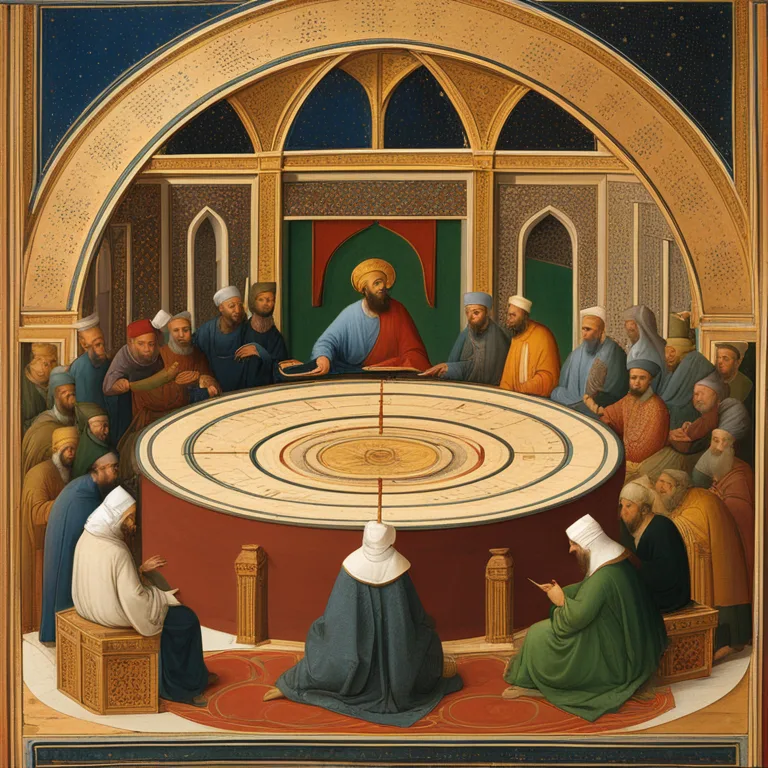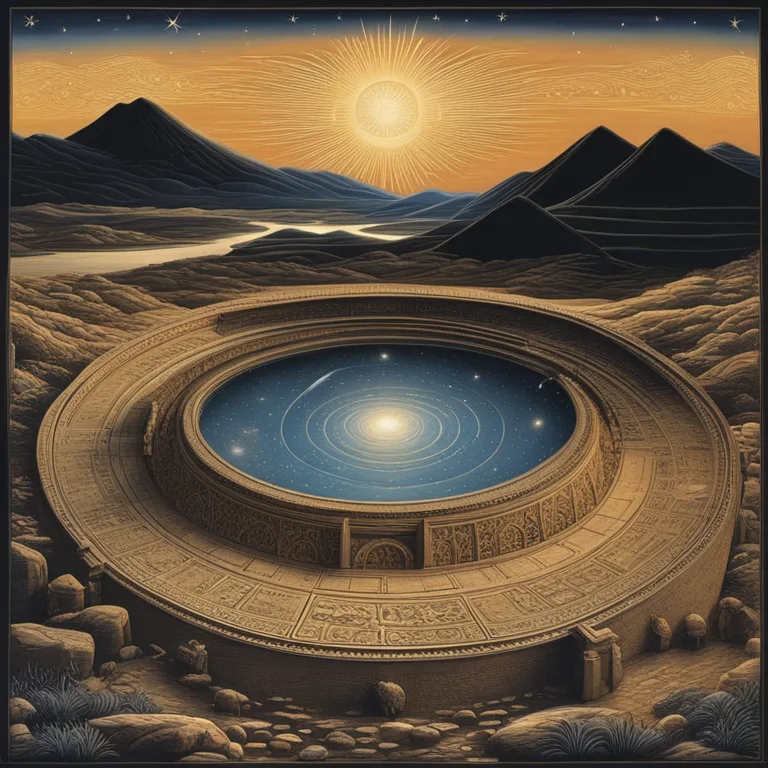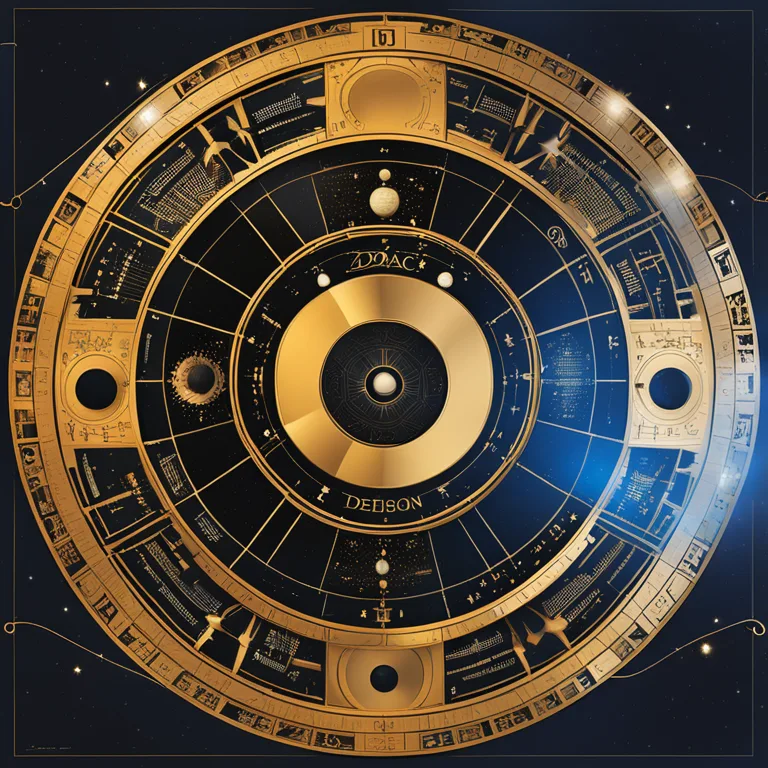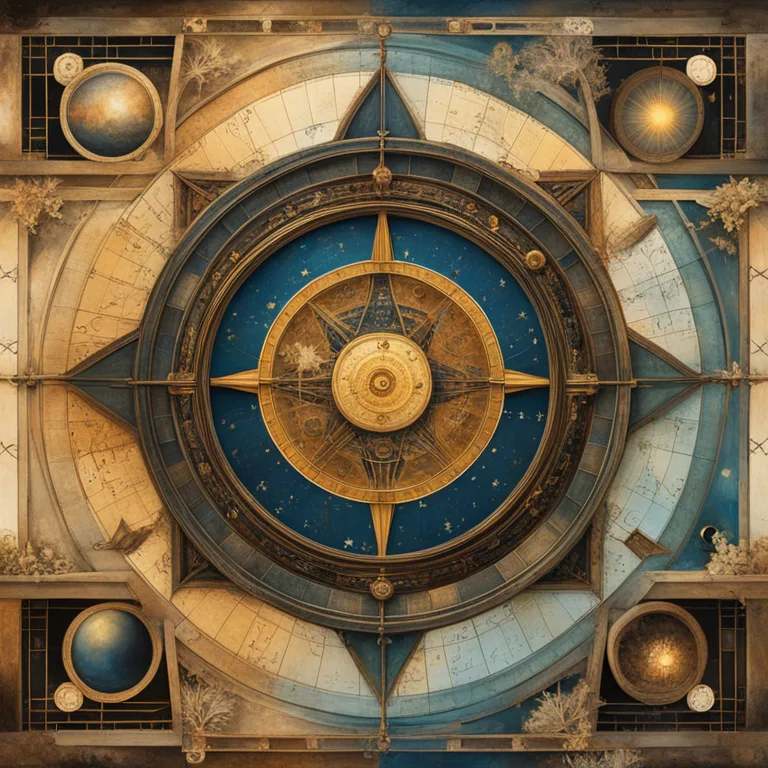
The Tapestry of Astrology: A Historical Overview
Dive into the rich history of astrology, from ancient celestial observations to its role in the modern world, as we trace its evolution over millennia.
article by Priya Deshmukh
The Dawn of Astrology
The roots of astrology stretch back to ancient times when our ancestors looked up at the night sky in awe and reverence. Civilizations like the Babylonians charted the heavens, identifying patterns and celestial bodies that they believed influenced terrestrial life. The Mesopotamians (circa 2nd millennium BCE) developed one of the earliest forms of astrology, where they discerned omens and forecasts from the stars. This knowledge was meticulously recorded, laying the foundation for natal astrology, which links individual destiny to the positions of celestial bodies at birth.

Greek Influence and the Zodiac
Astrology's next transformation lies in the hands of the ancient Greeks, who during the Hellenistic period (around 3rd century BCE) integrated Babylonian celestial knowledge with their philosophies, thus creating the zodiac system. The zodiac divided the sky into twelve sections, each represented by a constellation and associated with specific traits and destinies. This system was a progenitor to the horoscope traditions that suggest our personalities and futures are influenced by the stars under which we are born. This Hellenistic astrology laid the groundwork for what is known in the modern era as Western astrology.

Astrology's Role in the Middle Ages
During the Middle Ages, astrology flourished in Islamic cultures, with scholars translating and expanding upon Hellenistic astrological texts. The Islamic Golden Age saw the refinement of astrological calculations and the production of complex astronomical tables known as 'Ephemerides'. The knowledge from the Arab world eventually filtered into Europe, sparking a revival of astrological study during the Renaissance. Astrology in Medieval Europe wasn't just an esoteric practice; it played a significant role in medicine, politics, and even daily decision-making for both the elite and the common people.

Decline and Resurrection
The rise of the scientific method and astronomy in the 17th and 18th centuries challenged astrology's credibility, leading to its decline as a recognized scholarly pursuit. However, astrology never completely disappeared. The 20th century witnessed a resurgence of interest in the esoteric, particularly after the tumult of the First World War. The human psyche yearned for meaning, and astrology provided comfort and cosmic guidance. Carl Jung, the famous Swiss psychiatrist, even studied astrology and used it to deepen his understanding of the human subconscious.

The Modern Astrological Landscape
Today, astrology enjoys popularity with a digital edge, seamlessly integrating with technological advancements such as apps and online platforms. As we look towards 2024 and beyond, astrology continues to adapt and thrive in our fast-paced world. Social media allows astrologers to broadcast daily, monthly, or yearly horoscopes, reaching a global audience. Astrological forecasts suggest that as we move further into the Aquarian age, societal transformations may align with the innovative and unconventional characteristics associated with the sign of Aquarius.
Looking Ahead
In contemplation of the future, the position of Uranus in Taurus (lasting until 2026) hints at potential shifts in value systems and finance. Astrologers predict changes in how we view material possessions and wealth. As Neptune continues its journey through Pisces until 2025, there may be a collective search for greater spiritual enlightenment and understanding. While the accuracy of horoscopes remains a personal belief, the role of astrology in exploring human nature and destiny endures.
Published: 12/29/2023
Modified: 12/29/2023
More predictions
Come back here soon to learn more about yourself and your future


The Essence Of Your Birth Chart Wheel
Delve into the layers of your personality by understanding the key components of your birth chart wheel, an astrological tool for self-discovery.


Birth Chart: The Powerful Role of Jupiter
Explore the powerful role of Jupiter in astrology and its profound impact on our personal growth, luck, and life philosophy in the birth chart.


Your Birth Chart: Cosmic Blueprint Explored
Delve into the insights of your astrological birth chart and discover the cosmic influences that shape your personality, path, and potential.